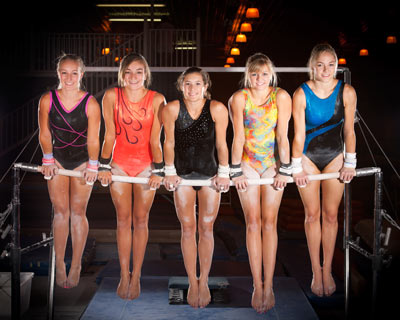
Sep 24, 2014 • 3 min read
‘Jock’ or ‘Artist’: Why Do Kids Have to Choose?
Posted in:
Growing up, did you consider yourself to be a “jock,” preferring to exercise your athletic prowess, or an “artist,” pursuing more creative endeavours?
When I was younger, I played sports so, for better or worse, I was considered a “jock” by a society that seemed fine pegging me in one silo instead of encouraging exploration into anything else. Now, with all these years passed, this makes me regretful. Don’t get me wrong; I loved athletic competition (and still do) but in feeling like I wasn’t able to explore other outlets for my energy, I feel I missed out on an opportunity to fully explore who I was, to express myself as an individual, and to develop confidence through self-expression.
Unfortunately, looking at my nieces and nephews today it doesn’t seem like much has changed. In fact, things may be getting worse with young athletes being pressured into choosing one sport over all others at very young ages, travelling to tournaments every weekend and participating in year-round leagues that leave very little time for anything else.
The good news is that it doesn’t have to be this way. The most obvious solution is to simply force kids to put the sports equipment down for a time and take guitar lessons or improv classes to help round out their skills. However, some kids might not want to do anything but play sports. After all, kids are kids and may not understand what will benefit them most in the future.
But it’s important for everyone to explore their creative side and fortunately, that doesn’t mean these kids have to leave the court or pool behind. What it will take though is a change of perspective in us – the parents and coaches – who are encouraging these young athletes to develop.
That change is to see the playing field as a blank canvas of sorts, a place where young people have the opportunity to express themselves creatively and where they can play around with ideas about who they are or who they want to be.
For all of us (parents, coaches, athletes) this will pay dividends both in the short and long term. By encouraging and challenging young athletes to explore their creativity on the field, they will come to some of their own conclusions about what kind of player (and person) they are and where they fit into the team (and society). This challenge will motivate them without them even knowing it because they will be working on their own development. Smiles and enjoyment will be the byproduct.
This isn’t easy. By and large, it’s a change in how we’ve previously thought about sports. There could be less emphasis on winning and more on development. There may be more show-boating or some judgement over which kids are better (not that these don’t exist in our current youth sport set-up). But perhaps by continuing to encourage self-expression, we can help mitigate these issues and continue to make youth sport what it should be: a place for our children to develop and grow physically, mentally, and socially into healthy, confident, happy people.
Brian Covert is a community builder with Up My Game, makers of an app that connects athletes with coaches and uses video analysis to help improve skills, technique, and training.


